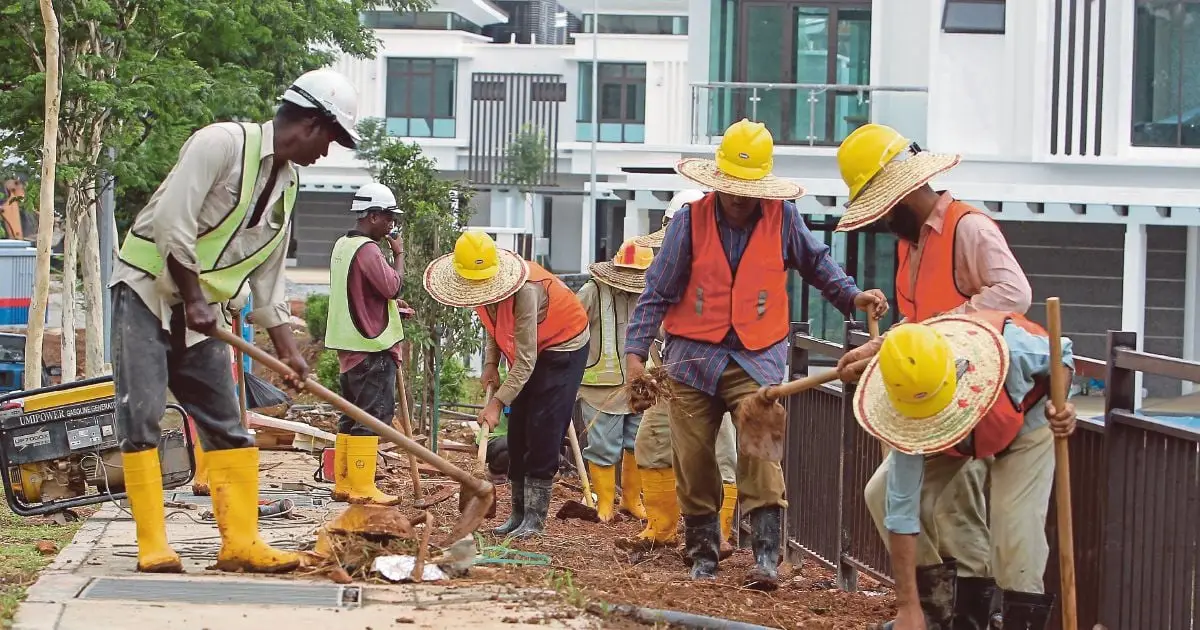Challenges faced by foreign worker agencies in Malaysia are complex and require in-depth understanding and creative solutions. Demand for foreign workers is on the rise in Malaysia, due to globalization. These foreign workers contribute to many industries, such as manufacturing, construction, services, and agriculture.
According to the team from Foreign Worker Agency Sama, there was a 20% increase in the demand for foreign workers in Malaysia in the past year alone. This underscores the urgency of addressing the associated challenges.
One challenge is recruitment. Processes must be developed to ensure fairness and transparency and verify documents provided by workers. Agencies should collaborate with authorities to eliminate illegal recruitment.
Accommodation is another challenge. Foreign workers often live in cramped, inadequate quarters. Agencies should collaborate with employers to provide suitable living conditions, with sufficient space, access to clean water and sanitation facilities, and regular maintenance.
Language barriers can make communication difficult between employers and foreign workers. Agencies should create training programs to equip workers with basic language skills relevant to their jobs. Employers should use visual aids or other communication methods to overcome language barriers.
Lastly, foreign workers are sometimes underpaid or exploited. Agencies must create awareness about employment rights and collaborate with authorities for enforcement.
Challenges faced by foreign worker agencies in Malaysia
Malaysia’s labor supply industry is in need of strategic solutions due to the unique challenges it faces. To keep up with changing demand for foreign workers, agencies must stay in constant communication and cooperation with government agencies and employers.
To ensure suitable workers are selected and recruited, agencies must conduct comprehensive interviews, verify credentials, and do thorough background checks. Plus, they must manage workers’ welfare and make sure they comply with regulations, such as providing housing, healthcare, and social support, as well as facilitating proper documentation and work permits.
Agencies also have to navigate complex bureaucratic processes to obtain approvals from relevant authorities. They must coordinate with multiple stakeholders such as the Ministry of Home Affairs, Ministry of Human Resources, Immigration Department, and other regulatory bodies.
To monitor workers’ performance and employer-employee relations, agencies need to establish effective feedback and conflict resolution mechanisms.
To tackle these challenges, agencies can use tech to streamline operations and make communication between stakeholders easier. They should also invest in training programs for their staff to keep them informed about labor laws and regulations. Lastly, agencies should collaborate with each other and share best practices to come up with industry standards.
Strategies to overcome the challenges
Surviving in the foreign worker agency business is like juggling grenades while blindfolded – you have to be explosive and precise, or it all goes up in smoke. To better tackle the challenges presented, explore new avenues for sourcing talent. Diversify recruitment strategies by reaching out to new markets and industries to avoid labor shortages and reduce reliance on typical worker-supply countries.
Take proactive measures to succeed! Develop solid partnerships with local agencies to easily manage complex regulations and procedures. Enhance recruitment methods by utilizing online platforms and launching targeted campaigns to attract more qualified candidates. Improve communication channels with advanced tech and efficient systems to streamline communication between agencies, employers, and workers. Provide comprehensive support services such as language training, cultural orientation, and ongoing assistance for a better experience for foreign workers in Malaysia.
Conclusion
Foreign worker agencies in Malaysia face many difficulties. These include language barriers, legal complications, and cultural distinctions. But there are ways to beat these obstructions and guarantee smooth functioning.
To start, language barriers are a huge challenge for foreign worker agencies in Malaysia. Speaking with workers who may not know English or the local tongue may lead to mix-ups and inefficiencies. To overcome this, agencies can invest in language training programs for their employees or hire translators who can bridge the communication gap effectively.
Another difficulty faced by foreign worker agencies is understanding the intricate legal landscape. Malaysia has strict laws regarding hiring and employing foreign workers, which can be confusing for agencies to stick to. It’s vital for these agencies to stay up-to-date on the newest legislation and cooperate with legal experts who specialize in labor laws. This will allow them to handle the legal complexities without any issues.
Cultural differences also present challenges for foreign worker agencies in Malaysia. Varied cultures have unique norms and expectations regarding work ethics, communication methods, and social interactions. Understanding and respecting these cultural differences is essential for the successful management of both workers and customers. Agencies can organize cultural sensitivity training sessions for their staff to promote better comprehension and harmonious relationships among all involved.


















